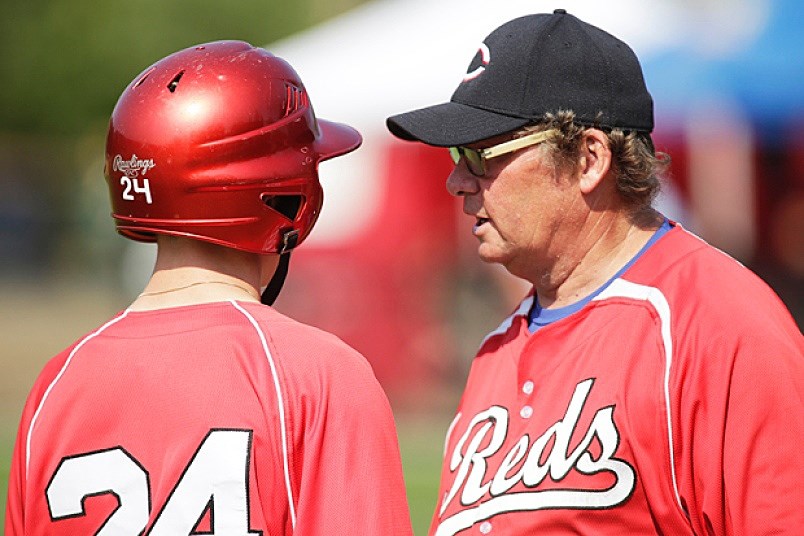Three years and two months after police descended on his Coquitlam home and seized electronic devices containing thousands of images of young boys, longtime Lower Mainland youth coach, Randy Downes, was convicted of voyeurism Friday.
Downes, who coached hockey and baseball in Coquitlam, Burnaby, New Westminster and other Metro Vancouver cities and worked as a youth sports photographer, was charged with voyeurism and child pornography in October 2016.
The child porn charges were dropped after a preliminary inquiry found none of the thousands of images met the criteria for that offence.
Based on 38 photos Downes took of two of his players in different Lower Mainland sports dressing rooms, however, B.C. Supreme Court Justice Heather MacNaughton found Downes guilty of two counts of voyeurism.
MacNaughton ruled Downes had taken the photos surreptitiously on his cellphone in a place where the boys could reasonably have expected privacy and where a person could reasonably be expected to be naked.
Downes’ lawyer, Glen Orris, had argued the players and their teammates, who were between the ages of 12 and 14 when the pictures were taken, never showered after games and practices, so the boys would never have expected to be naked.
Under the law, however, MacNaughton said the dressing rooms need only have been a place where “a” person could reasonably expect to be naked for Downes to be guilty of voyeurism for taking the photos.
Despite the photos showing the players in “various states of undress” – with bare torsos or in boxers – Orris had also argued they were not sexualized.
But MacNaughton said the prosecution did not need to prove the photos had been taken for a sexual purpose for Downes to be guilty of voyeurism under a certain section of the Criminal Code.
That section was enacted to protect people’s privacy against all manner of modern recording technology, including cellphones, she noted.
“In many ways, our society’s ubiquitous use of cellphones is the perfect camouflage,” MacNaughton said. “There are likely countless ways to use a cellphone to surreptitiously take photographs, including simply pretending to be reading something on it or calling someone.”
As an experienced coach, Downes would have known about rules against cellphones in dressing rooms put in place by hockey leagues for that same reason, MacNaughton said.
“Mr. Downes was in a position of trust with respect to (the boys),” she said. “He would be expected to understand the impropriety of using his cellphone to record the children he coached as they were undressing in arena dressing rooms. He was the individual responsible for ensuring that inappropriate persons who might try to take advantage of the children he coached were excluded from the dressing rooms.”
Crown prosecutor Gail Barnes has requested a pre-sentencing report with a psychological component before Downes is sentenced in the next 12 weeks.



